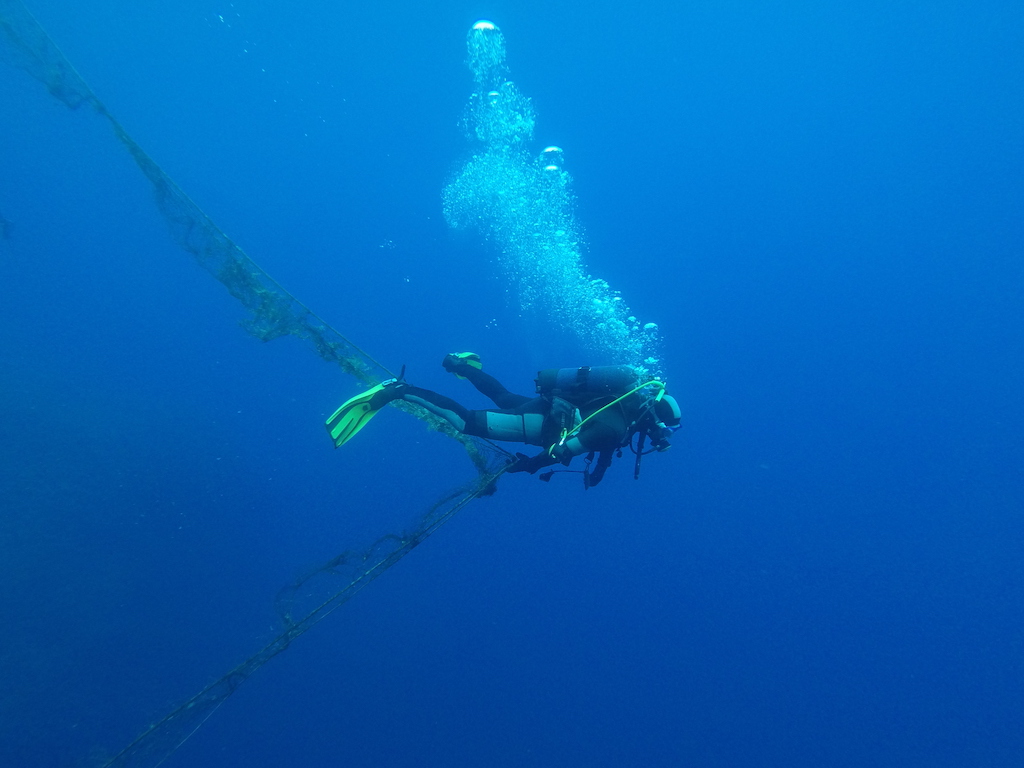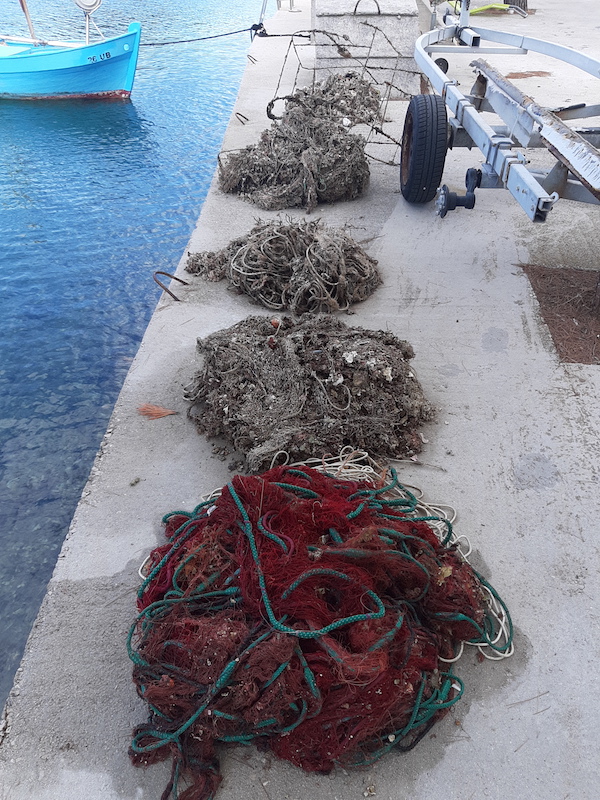October 19, 2021 - A ton of fishing waste was removed from the Lastovo seabed in an action that successfully cleaned 23 locations.
Every year, about a million tons of 'phantom' fishing gear end up in the seas, which take up to six years to decompose. Thus, the Adriatic Sea, as part of the Mediterranean Sea, which is considered one of the most polluted globally, becomes a graveyard of plastic.

Marko Frlan
The Mediterranean Sea is known as one of the most polluted globally, with as much as 95% of plastic waste in the sea and on beaches. Consequently, the Adriatic Sea is under siege by plastics. As much as 50% of all waste from marine sources relates to leftover, lost, abandoned fishing gear or 'phantom fishing gear.' To raise awareness of this burning problem, but primarily to clean the seabed itself, the World Conservation Organization WWF organized an action to clean the Lastovo seabed of phantom fishing gear. In a few days, about a ton of material was removed.
Fabijan Peronja from WWF Adria explains how fishing tools kill life in the sea and harm all of us because they fail to decompose even in 600 years.

Neven Marinic
"After fishers lose them, phantom fishing gear has its hunting function for decades to come. Fish, crabs, dolphins, sea turtles, and other marine organisms become entangled in nets, from which they can hardly get out and die in agony. Moreover, there is a big problem with the nets themselves: when they break down, they do not disappear but turn into microplastics that end up in our organisms through food, air, or water," says Peronja.
In addition to the sea creatures that perish in them, abandoned nets also damage fishers. This is a considerable financial expense because a network of about two hundred meters costs a minimum of 3,500 kuna. An additional problem is that this fishing gear can damage new nets and reduce fisher’s catches due to the hunting function they still have.

Neven Marinic
"The cooperation of fishers and divers is essential because it allows the net to be removed from the sea soon after it is lost. However, this way of working is not profitable due to the cost of diving, which, depending on the depth of the sea and location, is almost equal to the cost of the new net," explains Peronja and adds that as many as 30 different locations contaminated with fishing tools were mapped on Lastovo, of which 23 sites have been successfully cleared of nearly a ton of fishing gear.

Marko Frlan
"The work is not even close because the deadliest form of plastic pollution is everywhere, and we should find a model of cooperation for cleaning other locations and find a way to do it regularly. We believe that the business sector could help us achieve such cooperation and participate in nature protection in a way that is positive for the state of the sea and for the people who depend on it," concludes Peronja.

Ante Guic
WWF carried out the Lastovo cleaning action through its project "Ghost gear," in cooperation with the Lastovo diving centers Ankora and Ronilački raj and the Zagreb diving club DPS Zagreb. Abandoned nets and other forgotten fishing tools have significant environmental, economic, and social consequences for marine organisms, fishers, all those who live by the sea, and each of us.
See how the underwater cleaning campaign went in the video below:
For more, make sure to check out our dedicated lifestyle section.


